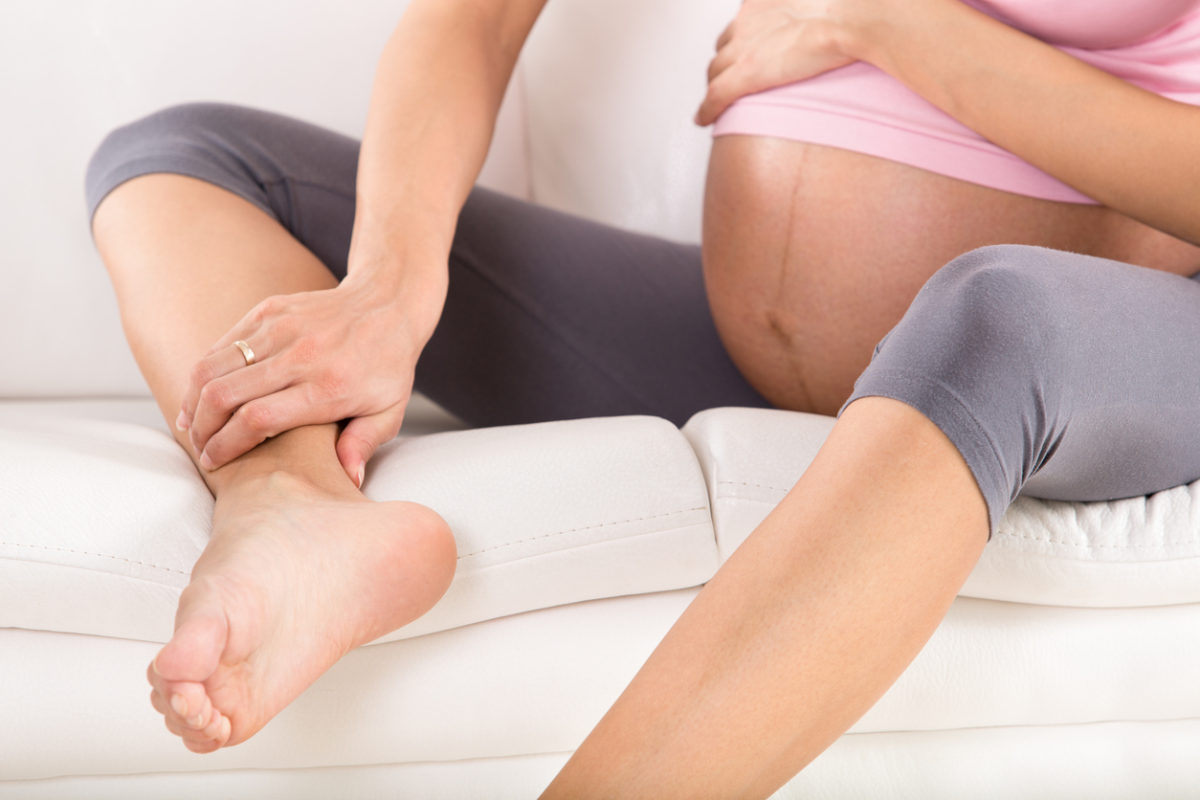
- February 21, 2022
- Comments: 0
- Posted by: Dr. Anushri Shah
You’re already having difficulty sleeping due to heartburn, the need to use the restroom every two hours, leg cramps, and a persistent case of pregnant insomnia. And now, in your third trimester of pregnancy, a new pregnancy symptom is holding you up at night: restless legs syndrome (RLS). If you’re one of the 15-17% of pregnant mothers who experience it, you’ll feel an uncomfortable and unnerving tingling, creeping, and swarming in your feet and legs, coupled with a want to move them – especially while you’re attempting to sleep. Your legs have seemed to rise to the surface of their own as if they’re hooked into an electrical outlet and are all charged up. Restless legs syndrome occurs when you have an uncontrolled need to move your legs in order to relieve crawling, tingling, or burning feelings (RLS). Willis-Ekbom disease is another name for it (WED). Symptoms might be light or severe enough to prevent you from receiving the rest you require. You are not alone. RLS affects men, kids, and women who are not pregnant, in contrast to pregnant women. RLS affects women twice as much as males, and 20% of pregnant women have it. Symptoms frequently worsen while you’re at rest, especially shortly before falling asleep or after sitting motionless for lengthy periods of time, such as at the cinemas or on a long car journey. RLS symptoms are most commonly felt in the lower legs, although some women also experience them in their ankles, thighs, elbows, or arms. Moving your limbs provides instant alleviation, but when you stop moving, the symptoms return. Needless to say, this may be quite inconvenient and annoying, especially while attempting to sleep. Although RLS is most noticeable at night, it can occur at any time when you are resting or sitting down. Almost all of the time, you won’t notice it until the third trimester of your pregnancy. Unfortunately, the traditional therapies for leg cramps — bending and stretching — may not be effective, and prescription drugs that may alleviate restlessness may be contraindicated during pregnancy. The major symptom is a strong desire to move your legs. However, you may have painful and unpleasant feelings in your legs. These are sometimes referred to as: These feelings are frequently worse right underneath the knee and can be uncomfortable at times. Your symptoms may be worse while you are resting and better when you are moving. They might be more severe in the evening or at night. Restless legs syndrome can be quite inconvenient, but it should not have an impact on your health or pregnancy. However, it might make getting a good night’s sleep more challenging. A lack of sleep will not harm your kid, but it will make your daily things more challenging. We offer pregnancy care programs like pregnancy yoga classes, pregnancy diet management sessions, and much more to help you sleep better. There is no one reason, although the study is continuing. It also tends to run in families. RLS frequently worsens during pregnancy for those who already have it. Nobody knows why women who have never had RLS get it during pregnancy, although there are several ideas, including iron insufficiency, folate deficit, hormonal changes particularly, an increase in estrogen, and circulatory alterations. Relief Hacks! Though this is one prenatal symptom that you will have to deal with if you have it, there are several strategies to alleviate it: Divert your attention When your feet begin to bounce on their own, pick up a crossword puzzle, watch your favorite rom-com, or start knitting…do anything to divert yourself from the vexing symptoms of RLS. Get some nap Despite the fact that RLS is known for keeping expecting mothers up at night, weariness will exacerbate your symptoms. You may not have to push yourself to lie in bed throughout an RLS episode, on the other side. Instead, stand up and take a few deliberate steps down the corridor. This simple movement can help alleviate the pain. Create a dietary diary Please note what you ate before experiencing RLS attacks. Some women discover that particular meals, such as carbohydrates consumed late in the day, might cause restless legs, and you might just be able to determine which foods cause your symptoms to ease or worsen. Take the test Inquire with your doctor about being checked for iron deficiency anemia, which some experts believe is associated with RLS. Meanwhile, heart-healthy-iron-rich, foods like beans, chickpeas, spinach, and dried fruit are always a good idea. Join Now Enrolling in Divine Mother’s pregnancy care programs such as weight management sessions, diet management, and pregnancy yoga classes will undoubtedly help you during this challenging period. you can aslo read about: Connection Of Mother with Her Unborn Baby 
What Is Restless Leg Syndrome (RLS)
How It All Begins:
 Symptoms Of RLS
Symptoms Of RLS
Causes Of RLS

